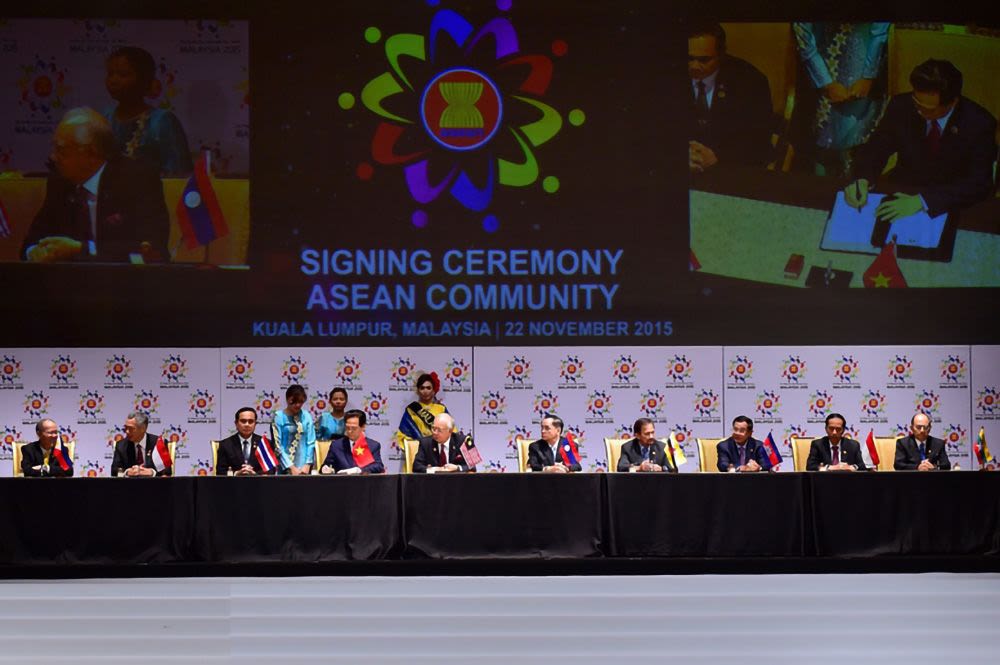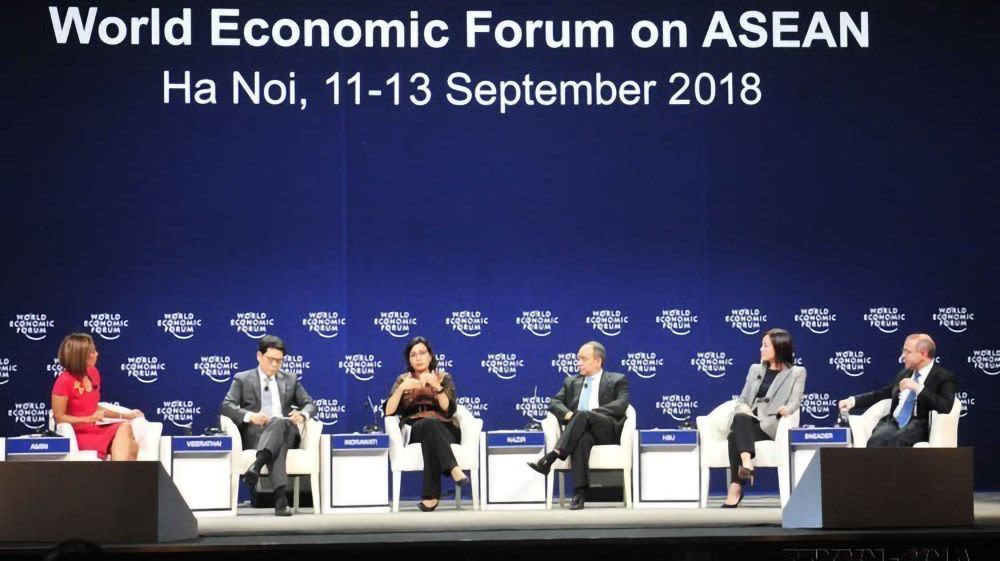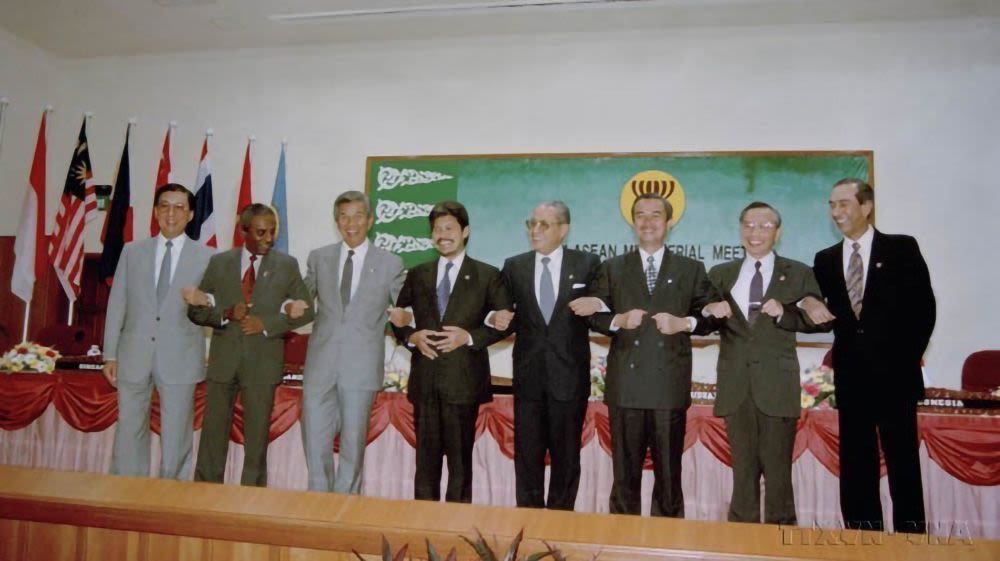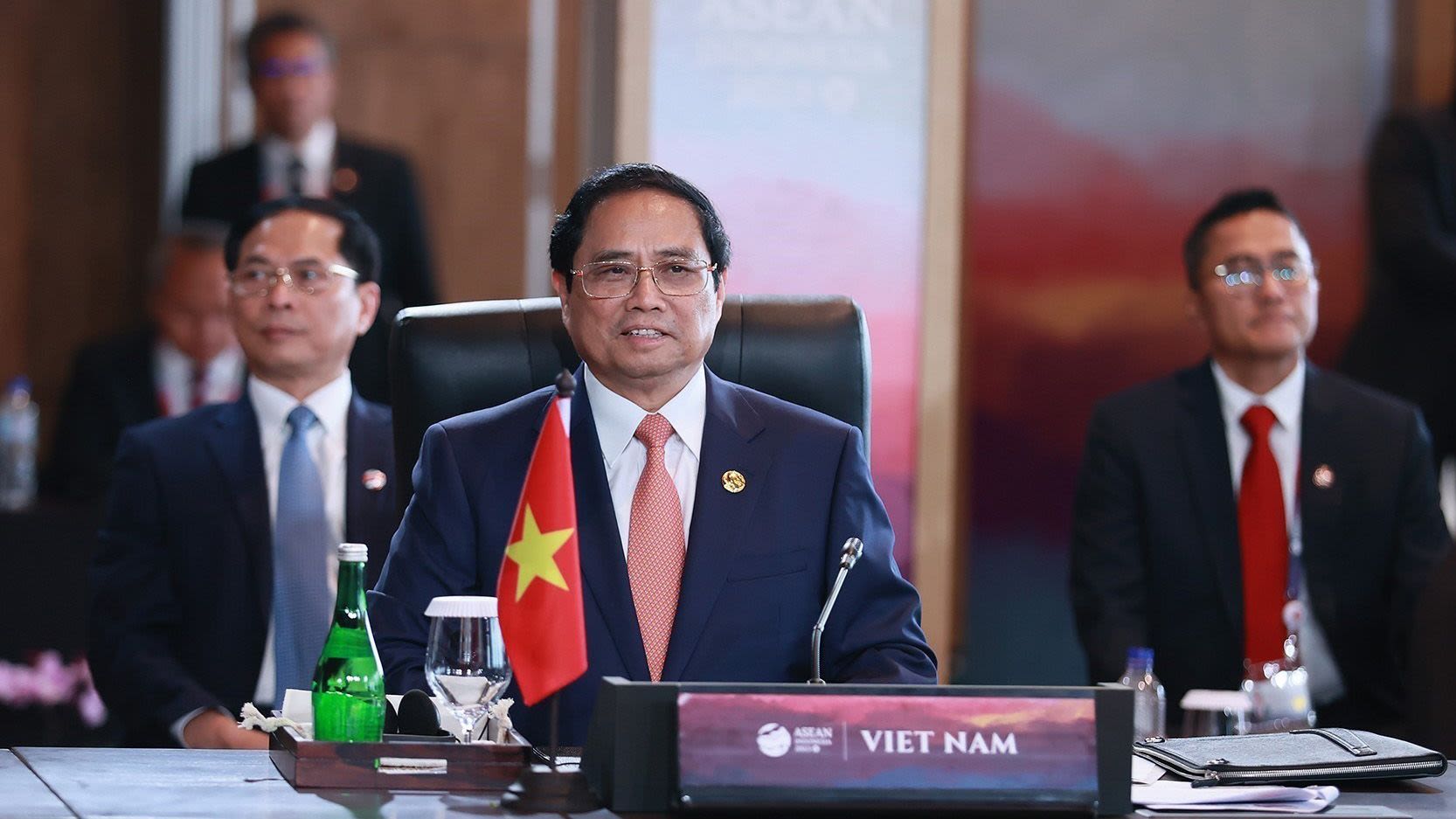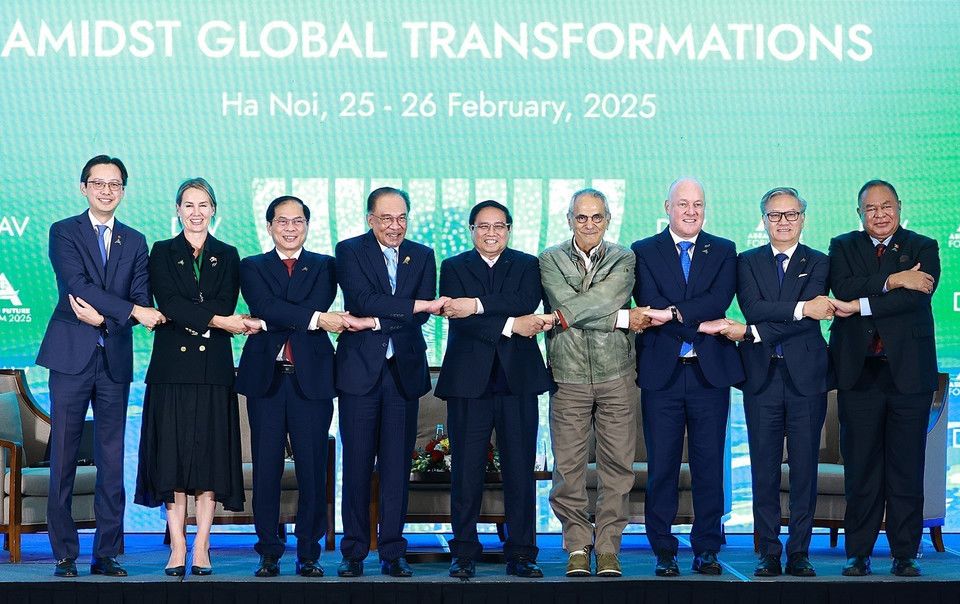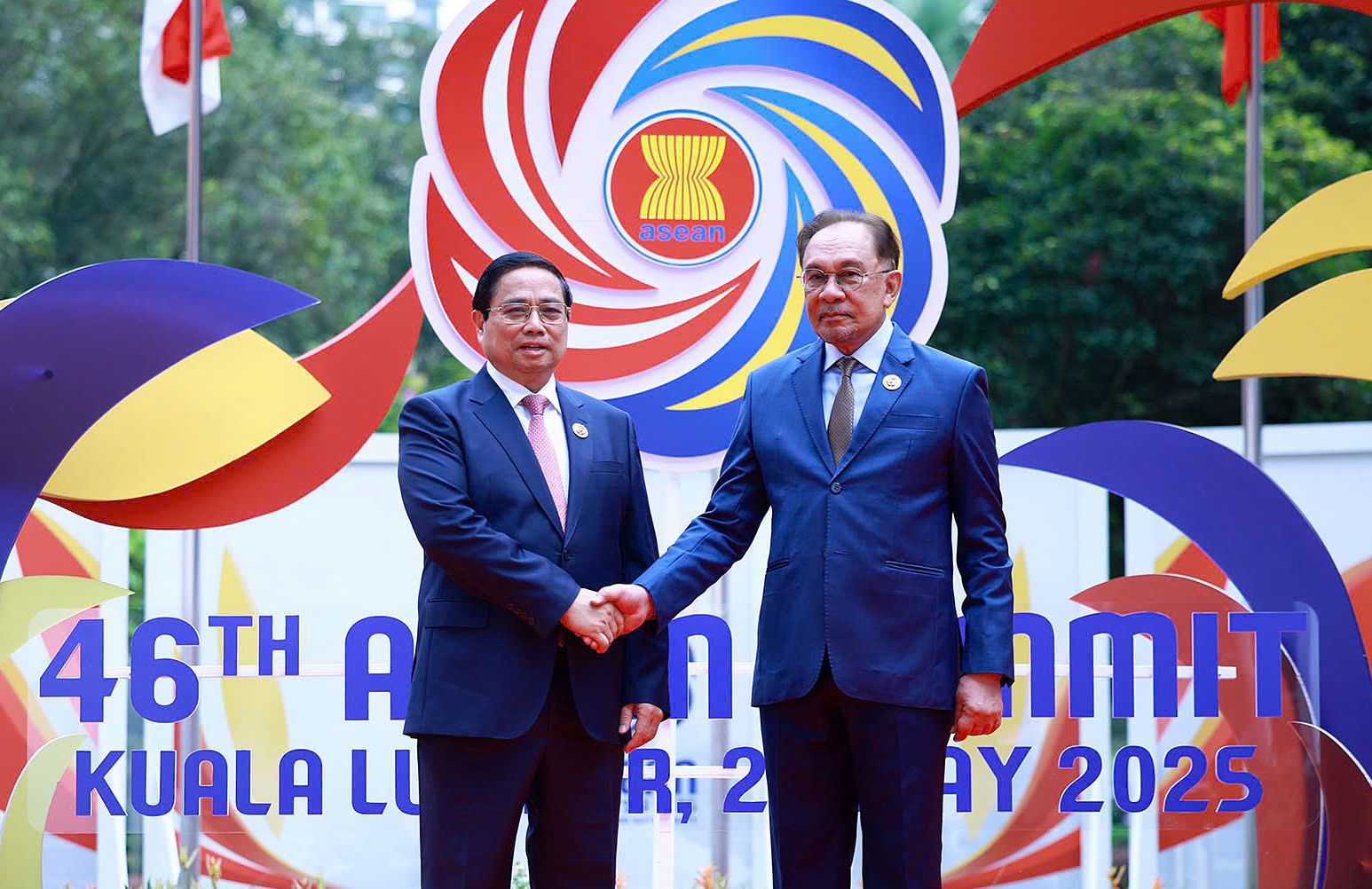
Prime Minister Pham Minh Chinh is leading a high-level Vietnamese delegation to attend the 47th ASEAN Summit and related summits in Kuala Lumpur, Malaysia, from October 25 to 28, 2025, at the invitation of Malaysian Prime Minister Anwar Ibrahim, Chair of ASEAN 2025.
The 47th ASEAN Summit and its related meetings are among the most significant events of Malaysia’s ASEAN Chairmanship year 2025. The gatherings bring together leaders of ASEAN member states, Timor-Leste, partner countries, the Secretary-General of the United Nations, and a number of other heads of state and international organisations.
Prime Minister Pham Minh Chinh’s participation underscores Viet Nam’s strong message of proactive, active, and responsible engagement within ASEAN—working alongside fellow member states to maintain and strengthen ASEAN’s centrality, unity, and responsible voice in promoting peace, stability, and development in the region and beyond.
A DRIVING FORCE FOR MULTILATERAL COOPERATION
After nearly six decades of formation and growth, ASEAN has become a successful model of regional cooperation and integration, enjoying rising prestige and influence. The bloc continues to deepen intra-regional collaboration while expanding and enhancing partnerships with countries and organisations across the globe. It has also played a pioneering and leading role in establishing and steering various regional cooperation mechanisms.
ASEAN leaders sign the 2015 Kuala Lumpur Declaration on the “Establishment of the ASEAN Community.” (Photo: VGP)
General Secretary of the Workers’ Party of Korea (WPK) and President of the State Affairs of the DPRK Kim Jong Un welcomes General Secretary To Lam. (Photo: VNA)
The official establishment of the ASEAN Community on December 31, 2015, built on three pillars—political-security, economic, and socio-cultural—marked a historic milestone in ASEAN’s qualitative development. This transformation has turned ASEAN into a cohesive regional organisation with broader and deeper cooperation, contributing significantly to peace, stability, and development in Southeast Asia and the Asia-Pacific. Faced with rapid and complicated changes in the global and regional geopolitical, security and economic environment, ASEAN has always strived to maintain solidarity and unity; gradually consolidate, expand and deepen the process of cooperation and connectivity within the bloc as well as between ASEAN and its partners inside and outside the region; continue to develop dynamically and integrate more deeply into the global economy, affirming its central role in the region and an indispensable factor in the regional policies of its partners.
In 2025, ASEAN celebrated the 10th anniversary of the establishment of the Community, entering the final year of implementing the 2025 Master Plans. To prepare for development in the new period, ASEAN has adopted the ASEAN Community Vision 2045 with 4 implementation strategies on politics-security, economy, culture-society and connectivity towards building a “Resilient, Innovative, Dynamic, and People-Centred ASEAN”.
Plenary session of the 46th ASEAN Summit, in Malaysia, May 2026. (Photo: VGP)
General Secretary To Lam holds talks with General Secretary of the Workers’ Party of Korea (WPK) and President of the State Affairs of the DPRK Kim Jong Un. (Photo: VNA)
In recent times, ASEAN has continued to promote and advance the Association’s common principles and standards of conduct. In the face of developments affecting regional peace, security, stability and development, ASEAN has maintained a balanced and flexible approach, consolidating its principled stance on international and regional issues. Regarding the East Sea/South China Sea, ASEAN has continued to consolidate its common stance and viewpoint on resolving disputes and differences by peaceful means in accordance with international law and the 1982 United Nations Convention on the Law of the Sea (UNCLOS), promoting the full and effective implementation of the Declaration on the Conduct of Parties (DOC) in the East Sea, and soon reaching a substantive and effective Code of Conduct (COC) in the East Sea in accordance with international law and UNCLOS.
The ASEAN Economic Community has made positive developments in recent years in terms of scale, level of connectivity, growth rate and real efficiency, helping to expand the market, create a favourable environment for intra-bloc investment and business, and at the same time create attractiveness to attract investment and business from outside. Trade and investment cooperation has been a bright spot.
ASEAN has placed priority on developing a resilient, inclusive, and people-centred economy to respond effectively to the world’s rapid changes, seize the opportunities of the Fourth Industrial Revolution, and keep pace with new trends such as digital transformation, the green economy, and e-commerce. The ultimate goals are to achieve sustainable development, narrow the development gap, and focus on the interests of both citizens and businesses.
Within the framework of the World Economic Forum on ASEAN 2018 (WEF ASEAN 2018), a discussion session titled “Asia Economic Outlook” took place on September 12, 2018, at the National Convention Centre in Ha Noi. (Photo: VNA)
Party General Secretary To Lam attends the ceremony marking the 80th anniversary of the founding of the WPK. (Photo: VNA)
ASEAN has been proactive in adapting to emerging development trends by establishing several new cooperation frameworks, such as the Digital Economy Framework Agreement, the ASEAN Digital Master Plan, and the ASEAN Power Grid. ASEAN’s mechanisms have continued to receive strong support, interest, participation, and endorsement from its partners, particularly major powers. This demonstrates ASEAN’s sustained capacity to bring countries together, reaffirming its credibility and central role as a trusted and flexible platform capable of maintaining balance in its relations with partners.
In terms of external relations, ASEAN continues to deepen and broaden its partnerships. Many partners have affirmed their respect for and support for ASEAN’s centrality, while promoting practical and long-term cooperation with the bloc and putting forward constructive initiatives. Despite facing numerous challenges amid growing strategic competition among major powers, ASEAN’s mechanisms have retained their strategic value in fostering dialogue and cooperation, attracting partners’ engagement, and jointly addressing common challenges. These efforts contribute to the shared goals of peace, security, stability, and sustainable development across the region.
AFFIRMING VIET NAM’S ROLE WITHIN ASEAN
For Viet Nam, participation in ASEAN holds strategic significance in ensuring a peaceful and secure environment, expanding development space, and enhancing the country’s international standing. The guidelines and foreign policy of Viet Nam have clearly underscored the importance of promoting the nation’s role in multilateral mechanisms, particularly within ASEAN.
Minister of Foreign Affairs Nguyen Manh Cam (second from right), ASEAN Secretary-General, and Foreign Ministers of ASEAN member nations attend the meeting marking Viet Nam’s admission as ASEAN’s seventh official member on July 28, 1995, in Bandar Seri Begawan, Brunei. (Photo: VNA)
An art performance celebrates the 80th anniversary of the founding of the Workers’ Party of Korea in Pyongyang, October 9, 2025. (Photo: Xinhua/VNA)
The year 2025 marks three decades since Viet Nam became a member of ASEAN. Viet Nam’s decision to join ASEAN has proven to be a sound and historically significant strategic choice by the Party and the State, bringing substantial benefits in terms of security, development, and international standing. Joining ASEAN enabled Viet Nam to overcome embargoes, paving the way for deeper regional integration and broader global engagement. With a proactive, positive, and responsible approach, Viet Nam has made practical contributions to ASEAN’s success, becoming integral to the organisation’s major milestones.
Viet Nam’s participation in ASEAN played a key role in admitting Laos, Myanmar, and Cambodia, thereby completing the formation of ASEAN-10 that unites all Southeast Asian nations and ushers in a new era of cooperation, friendship, and mutual trust. Viet Nam has also played an active and important role in shaping ASEAN’s development orientations and major policies, making positive and responsible contributions to maintaining the bloc’s solidarity, unity, and centrality, as well as strengthening ASEAN’s principled stance and balanced collective voice on regional and international issues.
Prime Minister Pham Minh Chinh attends the Dialogue between ASEAN Leaders and the ASEAN Business Advisory Council (ABAC) in Indonesia, May 10, 2023. (Photo: VNA)
Signing ceremony for the Letter of Intent on defence cooperation between the Ministry of National Defence of Viet Nam and the Ministry of National Defence of the DPRK. (Photo: VNA)
Thirty years of ASEAN membership have witnessed Viet Nam’s increasingly remarkable growth and prestige—from its early days of learning and adaptation to its current position as a proactive and capable member assuming key leadership roles. Notably, Viet Nam’s ASEAN Chairmanship in 2020 left a strong imprint of leadership, coordination capacity, and guiding vision, steering the region through the unprecedented challenges of the Covid-19 pandemic. Under the theme “Cohesive and Responsive,” Viet Nam successfully fulfilled all set objectives, consolidated ASEAN’s unity, sustained cooperation momentum, and proactively shaped new development stages with the initiative to build post-2025 ASEAN Community Vision.
In its role as a coordinator of ASEAN’s relations with numerous partners — including China, India, Japan, and the Republic of Korea — Viet Nam has effectively served as a bridge, deepening cooperation, elevating partnerships, and making substantive contributions to peace, security, and development in the region.
Beyond the regional scope, Viet Nam has initiated many notable and impactful initiatives that connect ASEAN’s priorities and concerns with those of the broader international community. One prominent example is Viet Nam’s initiative to organise the United Nations Security Council’s first meeting on ASEAN–UN cooperation in maintaining international peace and security. This initiative not only strengthened collaboration between the two organisations but also enhanced the standing of both ASEAN and Viet Nam within the regional and global arenas. The successful organisation of the ASEAN Future Forum in 2024 and 2025 in Ha Noi further demonstrates Viet Nam’s leadership and ability to guide discussions and shape orientations for the ASEAN Community Vision 2045.
Prime Minister Pham Minh Chinh and heads of delegations at the ASEAN Future Forum 2025. (Photo: VNA)
General Secretary To Lam and Jo Yong Won, member of the Presidium of the Political Bureau, Secretary of the Central Committee, and head of the Organisation and Guidance Department of the Workers’ Party of Korea (WPK), attend the inauguration ceremony of the statue of President Ho Chi Minh at the premises of the Vietnamese Embassy in the DPRK. (Photo: VNA)
Ambassador Ton Thi Ngoc Huong, Head of the Permanent Mission of Viet Nam to ASEAN
“Viet Nam is always ready to work closely with ASEAN countries to strengthen cooperation, share experiences and resources, jointly overcome current challenges, and seize new opportunities toward building an inclusive, resilient, and prosperous ASEAN Community.”
The shared aspiration of Viet Nam and other ASEAN members is to build a united, strong, and effectively cooperative ASEAN Community — one that contributes to peace, stability, and common prosperity for the region as well as for each nation. The participation of Prime Minister Pham Minh Chinh, leading the Vietnamese high-level delegation to the 47th ASEAN Summit and related summits in Kuala Lumpur, Malaysia, represents another opportunity for Viet Nam to reaffirm its consistent foreign policy — grounded in independence, self-reliance, diversification, multilateralisation, and comprehensive, deep international integration. Viet Nam’s active engagement continues to embody its commitment to working hand in hand with other member states to build an inclusive and sustainable ASEAN.
Production Manager: Chu Hong Thang – Pham Truong Son
Content: Nguyen Ha – Minh Hang
Translation: NDO
Sources: Ministry of Foreign Affairs, VNA
